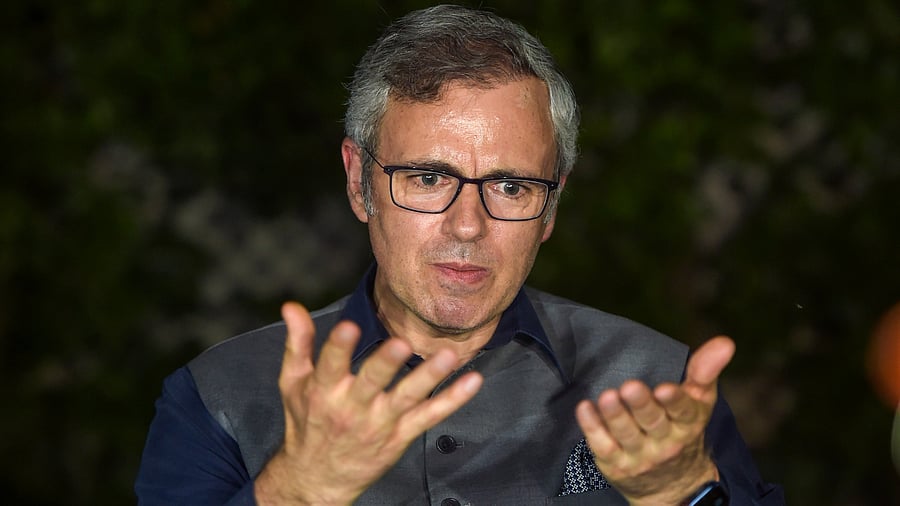
J&K CM Omar Abdullah
Credit: PTI File Photo
Srinagar: From the Jammu and Kashmir administration’s recent move to take over 215 schools affiliated with the banned Jamaat-e-Islami (JeI) and its Falah-e-Aam Trust (FAT), to the latest sacking of government employees over alleged terror links, Chief Minister Omar Abdullah finds himself navigating one of the most difficult phases of his political career.
As Abdullah approaches his one-year mark in office in over a month’s time, almost all the ambitious guarantees that the National Conference (NC) made in its 2024 election manifesto remain unfulfilled, exposing him to criticism from both allies and adversaries.
The NC’s “12 Guarantees” manifesto had promised nothing short of a political, economic, and social reset in the Union Territory. Among the top pledges were striving for restoration of Article 370, statehood and implementation of the full autonomy resolution passed by the erstwhile assembly in 2000.
Other promises included free 200 units of electricity, repeal of the Public Safety Act, release of political prisoners, transfer of hydro-power projects to J&K, dignified return of Kashmiri Pandits, and easing of passport verifications.
But over ten months into governance, Omar Abdullah has little to show. Even his much-trumpeted vow to end “unjust terminations” of government employees has been undermined by the Lieutenant Governor-led administration continuing with dismissals of staff accused of links to militancy.
Opposition parties have seized on this vacuum. “The NC sought votes on the basis of restoring dignity and rights of the people. Today, not one of those promises has been delivered,” opposition People’s Democratic Party (PDP) leader and MLA Waheed Parra told DH. “It proves what we had been warning — that after August 2019, Delhi will never allow any government in J&K to function with real authority.”
The Centre, meanwhile, has given no indication that statehood — let alone Article 370 or autonomy — is on the horizon. The silence has left Abdullah exposed before his own cadre. In his Independence Day speech earlier this month, the NC vice-president himself admitted, “My hopes from New Delhi have been dashed. After six years of silence, we are at the same place.”
Yet Abdullah tried to rally his supporters by calling for a more people-centric struggle. “We have written letters, we have met delegations, but now it is time to take this demand to the people’s doors. We cannot afford to sit back and wait,” he said.
Political analysts believe Abdullah is walking a “tightrope” between promises he made to voters and the limited authority the Centre is willing to grant his government.
“His first year has been a year of reckoning,” political analyst Prof Gul Mohammad Wani told DH. “While Abdullah has regained some legitimacy by returning to office, the reality is that core issues are beyond his control. The Centre’s tight grip has rendered the elected government more symbolic than substantive.”
For NC, the stakes are high. The unfulfilled manifesto threatens to erode its credibility, especially among young voters who had rallied behind Omar in the 2024 elections hoping for change. “We believed NC would reverse the post-370 humiliation,” said a university student in Srinagar. “But nothing has changed. We still face harassment in jobs, in passports, in daily life.”
The first anniversary of Abdullah’s government on October 16 will therefore be less of a celebration and more of a political test.